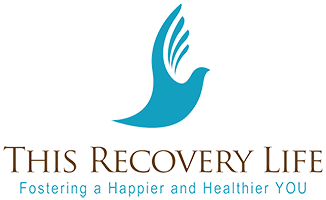
Fearless Assessment: How to Ground Yourself
Imagine for a minute that you’re looking to build your dream home. You will have a set of concerns that you will have to address before doing so. You have already picked a location and you have the means to do so. Awesome! You are already halfway there!
You are in the process of assembling your team to do so. You get an engineer to come and look at the land. He sees that you have a few feet of topsoil before you hit clay. The lot is fairly level as well as above sea level, so you will not be likely to have any flooding issues. It doesn’t seem to be a very rocky area, but you don’t know what you will run into during the digging of the foundation.
Based on your experience with the engineer, you are feeling good about moving forward with the project. You have accepted that there are variables that you might encounter along the way. Your attitude towards the project will be crucial to its outcome. Similar projects in the past might not have had such desirable outcomes. Were expectations so high that when something went wrong you blew up at someone or just gave up? What kind of relationship did you have with the people involved?
You have a job, so that will be help keep things together, but is the size of the project in proportion to what your earnings are? Will it take longer to see through due to limited funds? Will you have to curtail the size of the home you’re building? Maybe just cut down some of the finishes? ..the gold plated faucets or the marble counters?
You just found out that the town is requiring you to connect to the sewer system, a cost you were not aware of. Hopefully you have someone counsel you on this so that you may proceed with things in a legally “risk free” fashion.
Here we have looked at just a few points in assessing the building of your new home. Most decisions in life require assessing multiple points from various angles in order to get the best results possible. Whether it’s picking a college, buying a car, picking a partner, building a business, planning a family meal or taking inventory of our own life, making an assessment will help guide us in taking the next steps in productive fashion.
In recovery, it is no different. When was the last time you sat down and took an honest look at your whole self? I know this wasn’t a task I had ever even fathomed. Being afraid of admitting faults, shortcomings, fears or any kind of deficiency was not anything I ever wanted to do, so by default, my brain told me I didn’t have any. Now that I don’t live a fuzzy existence under the influence, my attitudes have changed.
Anyone in their right mind would take inventory of all the variables involved when buying new shoes, switching jobs, getting into a new relationship, picking the right internet provider or shopping for groceries. So why wouldn’t you take inventory when you’re looking to change your life for the better?
Here are a few areas of life that you may want to address. Some of them will pertain to you, some of them won’t. I encourage you to write these out while being honest with yourself when doing so. If it doesn’t strike you right away that there is an issue in a certain area, that’s ok. Everyone has their own variables and details that go along with them. More will be revealed as you work your way through this process whether there is an issue or not. This, is a good thing.
-Excessive behaviors such as drinking, drugs, smoking, gambling, food..
-Physical health, high blood pressure, high cholesterol, pre diabetes, heart disease, past injuries, weight issues, dietary issues, liver issues.. When was the last time you went to the doctor and were you honest with him/her?
-Thinking & thinking patterns, attitudes, excessive worry, anxiety, feeling a little more than just “sad”, depressed, anger, resentments..
-Relationships; familial, interpersonal, significant others, professional… Do you have a support system?
-Financial; employment, healthy balance of life and work.. Is your job fulfilling? Does it make you feel purposeful?
-Education; Have you completed your educational goals?
-Housing; Are you in a safe environment? Are your bills up to date?
-Legal issues; tickets, arrests, courts, fines..
With all of these, you want to a) create awareness around the problem b) pinpoint what the problem is and c) have a goal relating to the problem. Recovery is a nonlinear thing. You may choose to work on one area or two and address others when you are ready to do so.
When we make the decision to take action and make the changes necessary, it’s natural to want to do it all as soon as possible. Unfortunately, it’s not always effective to address it all at once. Remember, Rome wasn’t built in a day.. I would highly recommend that you review this with your therapist, counselor, doctor, mentor or a peer who has also made made changes in their life. It is usually best to find someone who will give you an honest, objective perspective on your findings. It’s more difficult for friend, family and loved ones to be objective since they are emotionally involved.
I will further explore these areas in the next few posts. Meanwhile, be gentle with yourself and keep stepping in the direction that is right for you.
If you find this post helpful for someone you love, go ahead and share it. Hit the LiKE button and leave a comment below. Love Life Today. THiS ReCoVeRY LiFE

Recent Comments